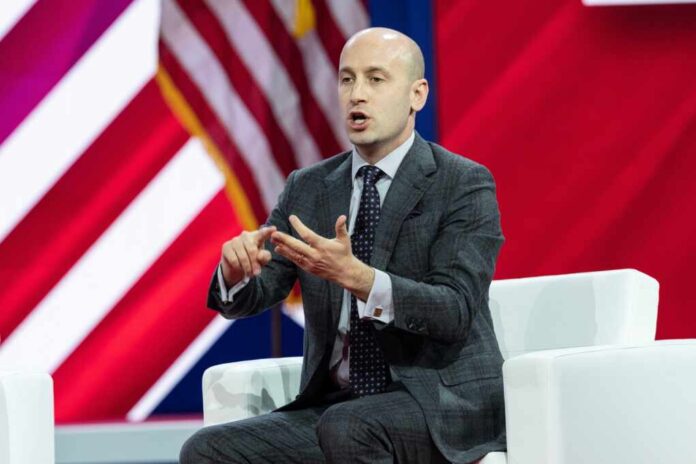
White House Deputy Chief of Staff Stephen Miller has sparked nationwide debate by suggesting the Trump administration is “actively looking at” suspending habeas corpus to address what they call an invasion at the southern border.
At a Glance
- Stephen Miller suggests suspending habeas corpus to facilitate mass deportations
- The U.S. Constitution permits suspension during “rebellion or invasion,” but many legal experts argue only Congress has this authority
- The proposal comes amid ongoing legal challenges to the administration’s immigration enforcement actions
- A federal judge recently blocked the use of the 1798 Alien Enemies Act for deporting Venezuelans
- Habeas corpus has only been suspended four times in American history
Constitutional Standoff Brewing Over Immigration Enforcement
Stephen Miller, one of President Trump’s most influential advisers on immigration policy, has confirmed the administration is exploring a rarely used constitutional provision to overcome judicial obstacles to its deportation agenda. The potential suspension of habeas corpus—the legal right allowing detained individuals to challenge their detention in court—represents a significant escalation in the administration’s approach to immigration enforcement and border security measures currently being blocked by federal courts.
Miller specifically referenced Article I, Section 9 of the Constitution, which states that habeas corpus shall not be suspended “unless when in Cases of Rebellion or Invasion the public Safety may require it.” The administration’s position hinges on classifying the current situation at the southern border as an invasion, thereby potentially justifying extraordinary measures. Legal challenges to the administration’s deportation efforts have intensified in recent months, with several federal judges issuing orders releasing detained individuals.
Legal Authority in Question
Constitutional scholars and legal experts have quickly challenged Miller’s assertion that the executive branch possesses the authority to suspend this fundamental legal protection. The Constitution is explicit about where this power resides, according to many legal authorities. Democratic attorney Marc Elias emphasized this point, stating, “Congress has the authority to suspend habeas corpus – not Stephen Miller, not the president.”
The administration’s consideration of such measures comes after a series of judicial setbacks. Most recently, a federal judge blocked the use of the 1798 Alien Enemies Act, which the administration had been using to deport Venezuelan nationals. Miller characterized habeas corpus as a “privilege” rather than a right and suggested that Congress had already limited judicial jurisdiction over immigration matters through various provisions in the Immigration and Nationality Act.
Historical Context and Presidential Frustration
Historically, habeas corpus has been suspended only four times in American history—most notably during the Civil War when President Lincoln suspended it, though this action was later ratified by Congress. Other instances occurred during Reconstruction and in Hawaii following the Pearl Harbor attack. The rarity of such suspensions underscores the extraordinary nature of what the administration is considering.
President Trump has expressed increasing frustration with judicial interference in his immigration agenda. In a recent social media post, he stated, “Our Court System is not letting me do the job I was Elected to do.” While the President himself hasn’t publicly mentioned suspending habeas corpus, CNN has reported his involvement in discussions about the possibility, indicating this proposal has high-level consideration within the administration.
Potential Implications
The administration’s proposal would likely face immediate and intense legal challenges, potentially triggering a constitutional crisis over the separation of powers. Legal scholars note that even if such a suspension were attempted, it would almost certainly be met with emergency appeals to the Supreme Court, which would need to address fundamental questions about executive authority during perceived national emergencies and the specific definition of “invasion” in the constitutional context.
The administration has already demonstrated its willingness to test constitutional boundaries in pursuit of its immigration goals. In a recent confrontation, Trump reportedly defied a court order to return deportation flights, resulting in Supreme Court intervention. As the administration weighs its options, the debate over constitutional powers, immigration enforcement, and judicial authority continues to intensify during the final weeks of Trump’s term.

























